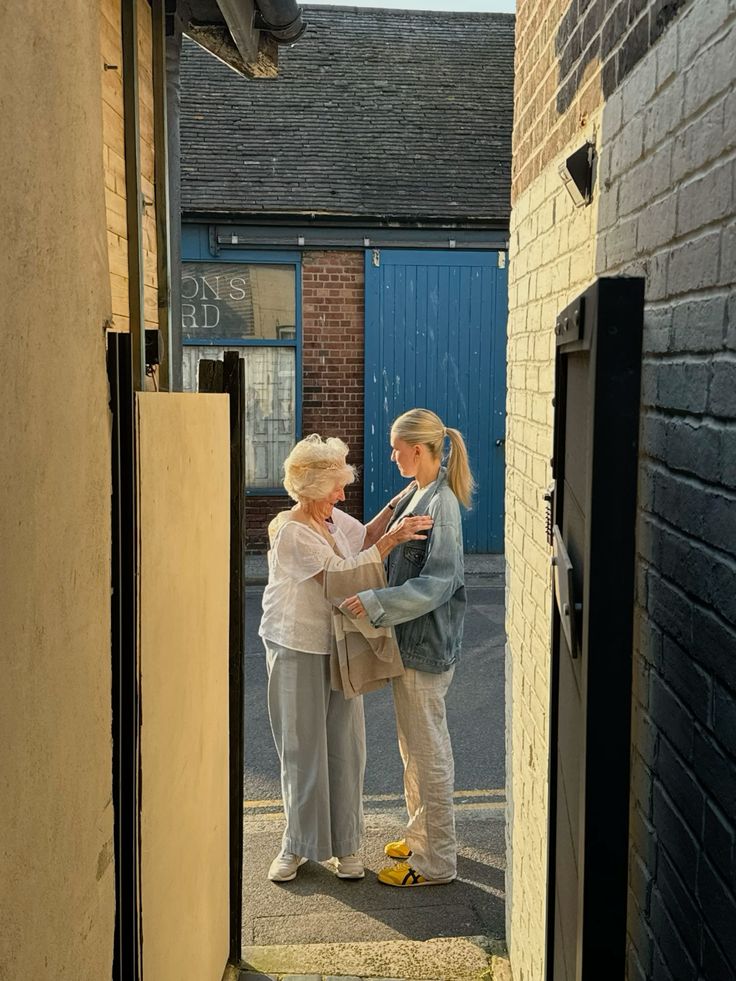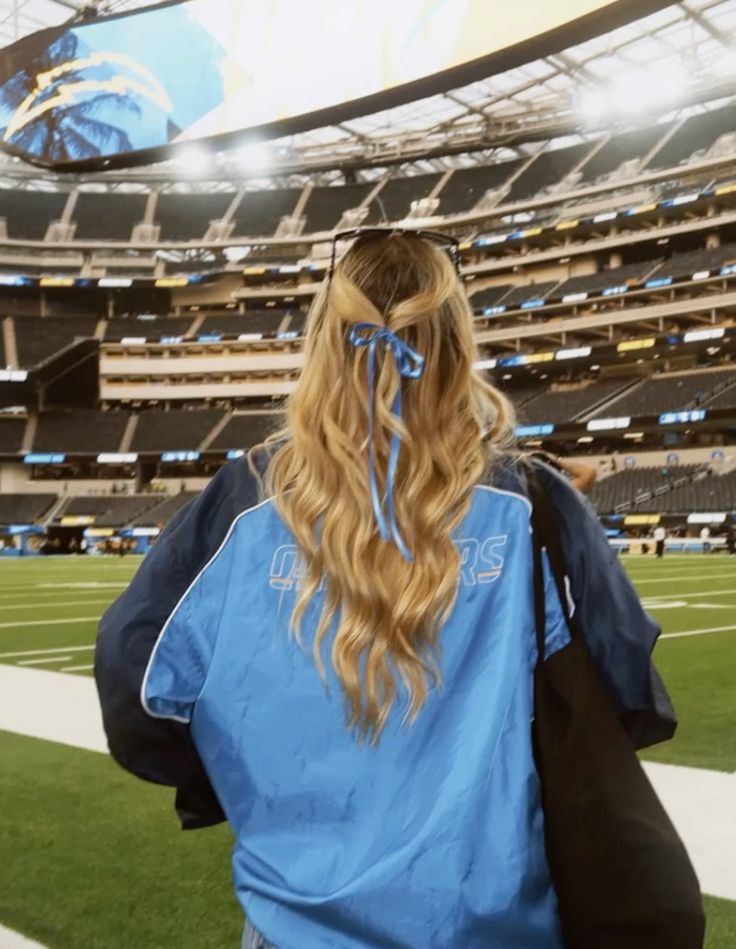Many people spend years and countless hours of effort attempting to conform with their surroundings. For Leen Obeidat, feeling like she belongs has never come easily, but she makes it seem effortless. Born in Jordan and raised in Saudi Arabia, at 21 she has had to adapt to people telling her she doesn’t quite fit in.
While people tend to lump all Middle Eastern people together as one big, similar culture, this notion is far from reality. Leen explains that when she’s in Saudi Arabia, they claim she’s “too Jordanian,” yet when she travels back to her birthplace that she mostly identifies with, they say she’s “too Saudi Arabian.”
“I never knew exactly where I belonged. But, I’m comfortable with that. I feel like part of being an international student is that. It’s being OK with feeling foreign. It’s not always a negative thing,” says Leen.
Leen grew up in Saudi Arabia with her mom, dad, and two younger brothers, where family was valued above all else. One of her most cherished memories is celebrating Eid, a Muslim holiday that concludes the hajj pilgrimage season, in Jordan with her entire extended family — something she didn’t get to do often since her and her immediate family lived in Saudi Arabia.
“It’s all about family and spending time with your family, visiting your grandparents, your uncles, your aunts,” says Leen.
Nowadays, seeing even her immediate family has become a challenge due to recent travel bans that were put in effect by the U.S. government. Executive Order 13769, also known as the travel ban, put in place last spring, denied entry to the U.S. for people with passports from Iran, Iraq, Libya, Somalia, Sudan, Syria, and Yemen.
Jordan and Saudi Arabia were never and still aren’t on the list, but Leen’s parents aren’t letting her take any chances by going home. They’ve already invested so much time and money into Leen’s education.
“It did send a shock wave — or a fear wave — in all of the Middle Easterners that are here. I felt like maybe I could be next and my country could be on the list next and that scared my parents.”
The travel ban kept Leen from traveling back to Jordan and completing the internship she had planned, so she had to scramble to find another option. She ended up finding another internship in State College and, luckily, it was one of the most amazing internships she’s ever had. As the marketing and telecommunications intern at West Arete, a software company here in State College, she was able to assist the company in launching and marketing a new product.
Keeping Up With the Americans
Leen’s first time in the U.S. was when she came over with her mother to move into her dorm room freshman year. After a quick stop in Washington D.C., Leen had to adjust to the small town feel and close living quarters of the East Hall dorms, something that most freshman take some time getting used to.
“Coming here, the shock part wasn’t what Americans were like, I knew what they were like. The shocking part was they weren’t exactly like how I saw them on TV,” Leen says. “There’s a different feel to each part of the United States and that’s something I didn’t recognize coming in… I feel it’s like living in different countries being in different states. So, coming in that was the most shocking part. Not all Americans are the Kardashians.”
One of Leen’s biggest fears coming into college was that her roommate wouldn’t understand what it’s like to be Middle Eastern. While she’s open to other cultures, she wasn’t sure how a randomly-chosen roommate would react to her culture. She ended up making the decision to room with someone she knew from back home in order to have a piece of home not so far away.
“It made the transition easier because whenever I felt like I wanted to be home, I would just come back to my dorm room and we could talk about high school, we could talk about whatever is happening back home so it felt familiar,” says Leen.
Although she is constantly surrounded by a student body predominantly different than herself, Leen has never felt like she’s any less of a Penn Stater.
“I didn’t feel uncomfortable at all though from anyone in Penn State. This is an awesome place to be.”
At Penn State, Leen dove into the academic and extracurricular strengths of the university. She is double majoring in finance and telecommunications, is the Business Manager of The Daily Collegian and has been a member of other organizations such as La Vie and 46-Live.
When choosing her major, Leen was careful to consider what her options after graduation would look like. As a freshman, she wanted to major in management information systems, but quickly realized a career in that industry is not prominent in the Middle East.
“Talking to people here and trying to figure out what would be the best major for me made me realize that I needed something global,” says Leen.
The global aspect of finance drew her in and her passion for media created the not-so-typical double major she now has.
Land of Opportunities
![]() When deciding where to go to college, in addition to the U.S., Leen looked at a variety of locations including Canada, Australia, and Europe.
When deciding where to go to college, in addition to the U.S., Leen looked at a variety of locations including Canada, Australia, and Europe.
“I’ve always wanted to be different ever since I was a child so a lot of my friends went to England because I went to an English school so I was like ‘how can I stand out?’ I wanted a different experience so to speak,” Leen says. “And in the United States, everyone knows that it’s the land of opportunities, it’s not like other countries.”
The different student lifestyle that the U.S. provided is what ultimately drew Leen to study here. She felt that the U.S. put more of an emphasis on what you did outside of the classroom at a university.
When it came time to attend the career fair as a senior, Leen quickly realized that her land of opportunity wasn’t quite as abundant as she had hoped. A lot of companies don’t sponsor international students for economic reasons, and Leen only found two that were sponsoring international students for entry-level positions.
Leen feels the companies are the ones missing out when it comes to this dilemma.
“I feel like a lot of companies are missing out on that opportunity. If you bring that foreign mindset, if you try to diversify and become more global, first of all you’ll attract better ideas and you’ll grow. That will also open up opportunities for you to move overseas and to become as big as the other companies.”
Although she’s facing some bumps in the road along the way and isn’t sure it’s a definite possibility, Leen still feels that she wants to call the U.S. home.
“I just feel like here I’d excel and I’d be more comfortable and I’d move much faster being in the United States just because I’ve been used to living here and working here for a while now.”
While some things like the job search and traveling would have been easier if Leen had studied elsewhere, she couldn’t imagine being anywhere else.
“I don’t regret being in the States. I’ve learned so much, I’ve met so many people, and I love being a Penn Stater.”
Navigating Misconceptions
“A lot of times when I sit and watch TV here, I’m like ‘this is not true!’” Leen emphasizes when discussing the media’s portrayal of her hometown, “This is not what we look like, this is not what the Middle East looks like.”
The effects the media has in telling the story of her home and her people is a major influence in why Leen wants to stay in the media industry. After recognizing that her presence on The Daily Collegian’s staff has made a difference in a way they conduct the news, even though she doesn’t control the content, Leen feels she can be a positive force in the field.
“I would love to stay working in the news industry in the future so that maybe, hopefully, when people have questions, people aren’t sure about things, if they want to convey the Middle East in a specific way in the media, they ask questions,” Leen says. “Maybe I can direct them to the right resources even if I don’t have the answers myself.”
It also helps that Leen isn’t afraid of being asked tough questions. She feels that some people are afraid to ask questions for the fear of seeming ignorant, but Leen gets excited when people recognize that she’s from the Middle East and are curious about her culture.
One of her favorite questions to get is whether or not she feels discriminated against as a woman in the Middle East.
“A lot of them think we’re oppressed which is not true,” Leen says. “Women that choose to cover their face, they choose to do that. No one is making them do that.”
Leen has made the choice to not wear a hijab yet, a decision that she will put a lot of thought into when the time comes, as putting on a hijab is a major commitment. Leen explains that women choose to do it at different points in their life depending on familial values and personal choice.
“For me, I know it’s something I want to do in the future, I just don’t know if I’m ready for it yet,” says Leen. “I hate to say it, but a lot of it is being abroad. I don’t know if I’m strong enough or ready yet to face what veiled women face outside of the Middle East. It’s difficult. The looks you get of people staring at you like you’re an alien is enough to destroy me as a person and I feel like women who cover up and live outside the Middle East are very, very strong women and I wish I was like them but I’m not.”
A major milestone for Saudi Arabian women is the recent law that passed allowing them to drive in their country beginning in June 2018, a privilege that Leen always felt she missed out on.
“I was definitely excited that women can now drive in Saudi. I think it’s a step in the right direction and I’m looking forward to bigger changes in the future,” says Leen.
While Leen has seemingly navigated through these misconceptions with ease, the negative perceptions her country has gotten recently have made her a bit more cautious when it comes to showing off her religion, especially after hearing horror stories from her friends about the way they’ve been treated just by practicing their religion.
One of the first things Leen did when hearing about unpleasant experiences that her fellow Middle Easterners had was take off a necklace she constantly wore that spelled her name in Arabic.
“It’s really hard for me because as Middle Easterners we are very, very proud of where we come from and we like showing it off,” Leen says. “Just feeling like you have to hide it and not expose it as much to avoid someone saying something mean to you is definitely difficult.”
One of the most frustrating misconceptions that Leen feels is prevalent in our country is that when some people pair Islam and terrorism together. Leen has personally read both the Koran and the Bible, and while they might tell different stories, they both speak the same language of peace. Unfortunately, some have misinterpreted the Koran in such a way that puts Islam in a negative light.
“We’re not supposed to be hurting people. We’re not supposed to be starting wars. This is not Islam. Islam means peace and that’s the literal meaning of the word ‘Islam’… We’re a religion of peace and we don’t believe in terrorism. I really wish people knew that,” says Leen.
Changing the Narrative
“If I could make people more open to other cultures, more accepting of other cultures, this could solve a lot of problems in the world.”
Leen loves to talk to people who don’t know anything about the Middle East as it allows her to open people up to other cultures. She wants to be able to lead by example of the openness that we should be sharing with one another.
You don’t have to hop on a plane to experience a culture different from your own, though.
“Being open and putting yourself in organizations that you know are a little different, a little diverse,” is one way Leen believes people can start to be more open to one another.
“There’s nothing wrong with going and talking to other political organizations. There’s nothing wrong with talking a little bit more or trying to understand someone who’s sitting right next to you in class that is from a different country.”
In fact, Leen would tell her younger self to be even more open and unafraid.
“I would have told myself to not be afraid to experience things and go outside of my comfort zone,” says Leen.
She feels that a lot of teenagers, including herself don’t always think about traveling, stepping outside of their comfort zone, experiencing new things and being far from home. Even Leen didn’t necessarily want to be a 12-hour plane ride from her parents. Pushing yourself and doing things you’re not used to doing is something that people shouldn’t wait to do.
When asked if she felt the world would be different if people stepped outside of their box, Leen’s response was quick. “The world would definitely be different. Because they would know what it’s like to be uncomfortable. They wouldn’t make any place hostile for anyone, they wouldn’t make any place uncomfortable for anyone,” says Leen.
However, Leen feels if you have the means, travel is one of the best ways to step outside of your comfort zone and experience something new.
“I think that’s another thing is just like being uncomfortable somewhere else and trying to figure out how can I make myself comfortable, how can I understand these people a little bit more and asking questions. Even if you’re scared of being offensive, sometimes asking the question will help you figure out why they do things the way they do.”
Born Bold, Staying Bold
While Leen faces a lot of adversity simply for believing in what she believes in and being from a certain part of the world, she isn’t afraid to keep going and keep being bold. In fact, one of her favorite quotes is “This too shall pass.”
“I’ve faced a lot of difficulties and a lot of things have gone wrong in my life and I always just remind myself that this is going to pass and I’m going to move on and life is going to continue,” says Leen.
This constant reminder is what helps Leen to keep pushing herself and to not be afraid of being uncomfortable.
“I keep convincing myself that this is not the end, that one obstacle is not going to destroy me, that I should keep working hard on myself and keep trying to do more.”





